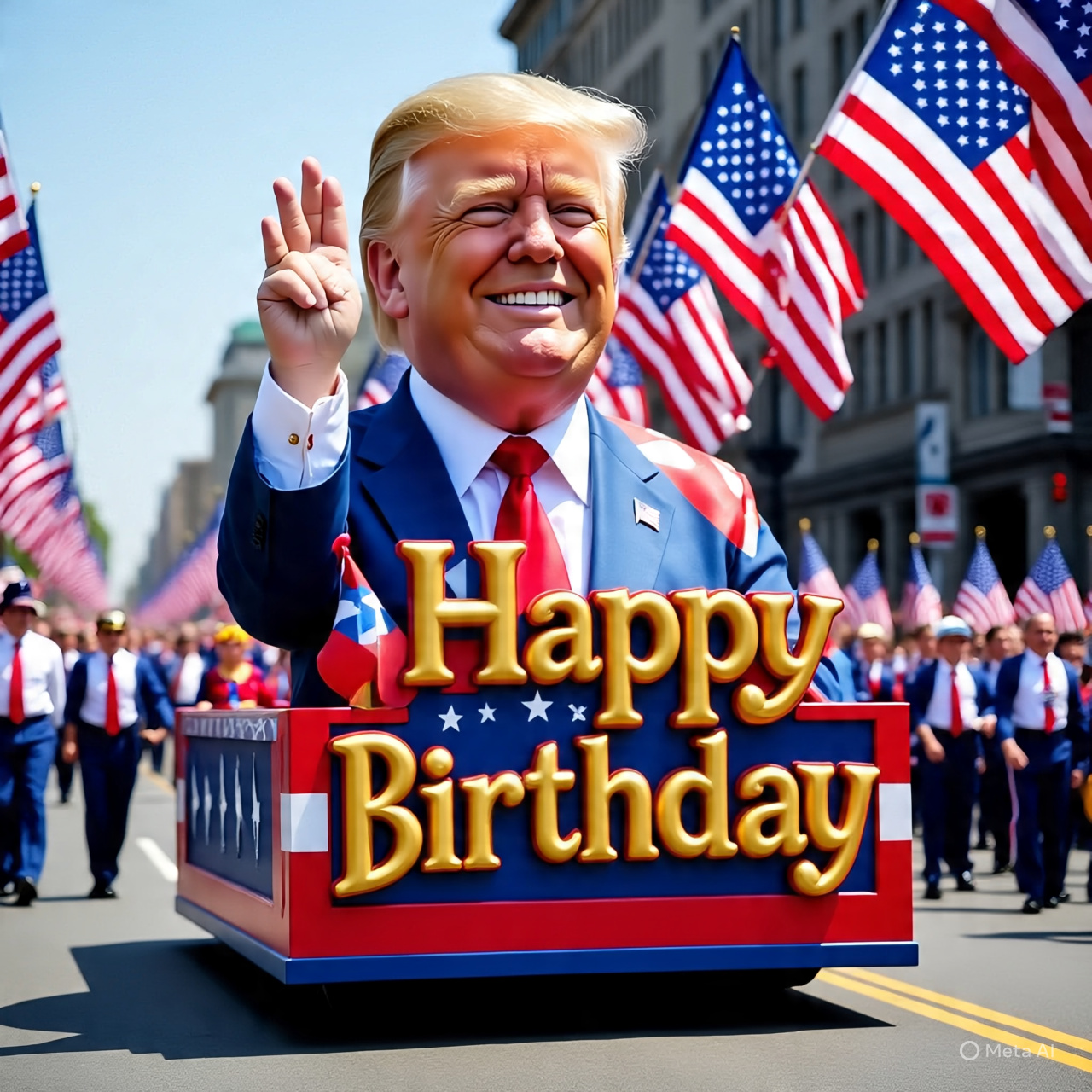FnF News
FNF News | National Culture & Politics
Published: June 16, 2025
By: Khadija Khan
Patriotism or Personality Cult? Why Holding Major Events on Trump’s Birthday Keeps Stirring Controversy
When former President Donald Trump marked his 79th birthday on June 14, 2025, with a high-profile military-style parade in Palm Beach, supporters hailed it as a celebration of “true American values.” But for critics and even some conservatives, the optics were more troubling than triumphant. The question reverberating online and in op-eds was simple: Why not hold the parade on the Fourth of July instead — a universally recognized day of national pride?
This isn’t the first time the former president’s birthday has been turned into a political lightning rod, but this year’s spectacle has reignited long-standing debates about patriotism, political branding, and the growing divide between civic tradition and partisan theatrics.
The Parade That Sparked the Pushback
Held on June 14 — a day that already carries symbolic weight as Flag Day and the U.S. Army’s birthday — the event featured marching bands, vintage military vehicles, and a tribute to Trump’s presidency, complete with banners that read “Make America Proud Again” and “The Real Commander-in-Chief.”
“This is our Independence Day,” declared Rep. Matt Gaetz (R-FL), speaking from a podium draped in red, white, and blue. “It’s not just about Trump. It’s about honoring the man who restored American greatness.”
But critics weren’t convinced. To many, the timing felt deliberate — and divisive.
“If this is about America, then why not July 4th?” asked conservative columnist Jonah Goldberg in The Dispatch. “Why center it around one man’s birthday instead of the country’s founding?”
The Personality-First Patriotism Problem
According to Dr. Melissa Hanford, a political scientist at the University of Chicago, the parade’s timing is part of a broader trend: the personalizing of patriotism.
“In earlier decades, even partisan presidents respected national symbols by keeping them above personal branding. Trump, however, reshaped national identity around himself — he became the symbol,” she says.
This shift has left traditional conservatives uneasy. Prominent voices in the Reaganite wing of the GOP argue that tying national military celebrations to an individual leader — especially one no longer in office — risks undermining democratic norms.
Indeed, former Secretary of Defense James Mattis once warned that “military imagery should serve the Constitution, not a cult of personality.”
A Missed Opportunity for Unity?
The backlash to this year’s Trump birthday parade wasn’t just from the left. Independent voters and even some right-leaning veterans took issue with the choice of date.
“It should’ve been July 4. Full stop,” said Ret. Army Col. David Hawkins. “If you want to unite the country, pick the day that actually belongs to everyone. Not the day that flatters one man.”
Online, the conversation trended under hashtags like #July4NotJune14, with users arguing that hijacking a day of national pride for partisan celebration “undermines what America stands for.”
Others pointed to the lost potential: “Imagine if Trump had rallied his base to celebrate the Fourth instead — veterans, families, history, fireworks, unity,” one user posted on X. “But no, it had to be about him. Again.”
Trump’s Perspective: “It’s the Real American Day”
Trump himself, however, appears to embrace the symbolism of June 14. In a Truth Social post, he called it “the true American Day — not the bureaucrats’ Fourth of July with their fireworks and phony speeches.”
He went on to claim that “Flag Day is ignored by the deep state” and “the real patriots know what June 14 means.”
To his core supporters, this rhetoric resonates. Trump has successfully turned dates, phrases, and holidays into tools of political branding. Whether it’s “Merry Christmas” or “American carnage,” symbolism is central to his political identity.
Is the Fourth of July Losing Cultural Ground?
Some experts worry that in this era of hyper-partisan symbolism, even foundational American holidays are being politicized — or worse, sidelined.
A recent Pew Research Center survey found that only 42% of Americans under 35 associate July 4 with civic pride. For many younger voters, the day has become commercialized, disconnected from its revolutionary roots.
“When politicians abandon July 4 for personality-centered events, they help that decline,” says Dr. Hanford. “They send a message that unity is outdated, and partisanship is all that’s left.”
Final Thought: What Patriotism Should Mean
The argument that “Trump’s birthday parade should’ve been held on July 4” isn’t just about logistics or optics — it’s a question of values. What does it say about America in 2025 that one man’s birthday now competes with the country’s own independence day?
The criticism isn’t personal, it’s principled. As one veteran put it, “Celebrate whoever you want — but do it on a day that unites us, not one that divides us further.”
Sources:
- Pew Research Center: “American Identity and Civic Traditions,” May 2025
- Truth Social Post by Donald J. Trump, June 14, 2025
- The Dispatch: “Flag Day Is Not a Cult Day,” by Jonah Goldberg, June 15, 2025
- Interview with Dr. Melissa Hanford, University of Chicago (June 2025)
- U.S. Army Historical Division: “The Legacy of June 14”
- X (formerly Twitter) trending data via Trends24

